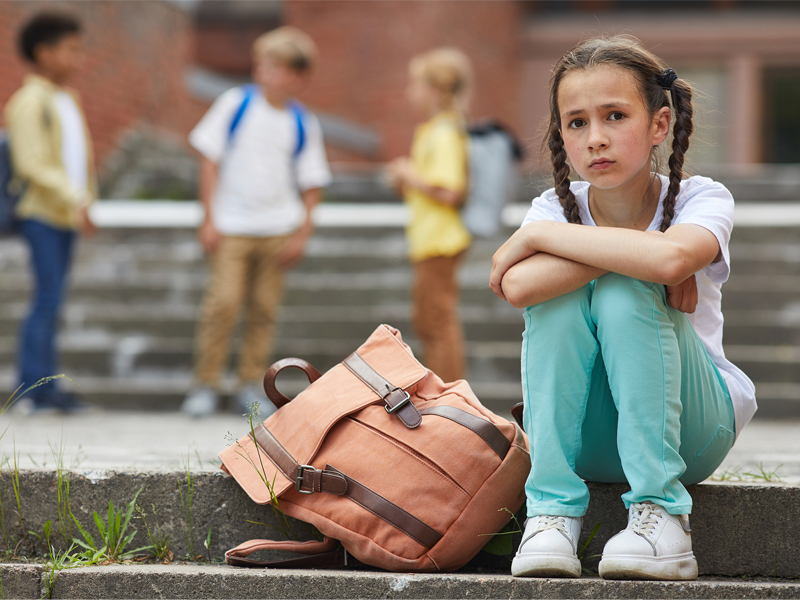When parents send their kids to school they hope that they are safe and happy as they learn and grow, but when your child becomes a victim of bullying it can be hard to know how to help them. According to stopbullying.gov, between one in three and one in four U.S. students say they have been bullied. This is most common in middle school and most often takes the form of social or verbal bullying. Due to recent programs and education, studies have shown the number of kids being bullied is declining. However, it is still a problem that should be taken seriously. Parents can educate themselves in what they should do so they are prepared if their child feels like they are being targeted by a bully. Here are some tips to give your student.
Just say stop
The first thing your child can do when faced with a bully is to say “Stop!” It is healthy for all kids to understand boundaries. If someone is speaking to them, touching them or treating them in a way that makes them feel uncomfortable, they have the right to say “No!” or “Stop!” If it continues, they can walk away from the situation. Learning to verbalize their feelings and take charge of the situation will benefit them into adulthood. They should never have to feel stuck. Likewise, kids should understand that if someone asks them to stop, they need to respect others enough to change their behavior immediately.
Walk away
If your child has asked their bully to stop and the behavior continues, let them know the best choice is to walk away. Ask your child if they have a person they feel safe telling about the bullying behavior at school. Let them know that if they have asked the bully to stop and they did not, they should then walk away and go tell someone they feel safe talking to about the situation. It is never a good idea to start a physical fight with anyone. If your child is not comfortable talking to an adult at school or they have reported bullying but don’t feel heard, it may be a good idea for the parent to contact the school directly and come up with a plan to stop any future bullying. By first allowing your child to address the situation, you are teaching them empowerment.
Use the buddy system
Often kids who are targeted by bullies are perceived as different by their peers. Bullying often happens with a group of kids targeting a child who is alone. Encourage your child to play with other kids with similar interests. A group of kids is less likely to be targeted.
Laugh it off
It is no surprise that bullies find enjoyment out of picking on others because they get a reaction. Sometimes laughing it off or making it into a joke can stop the bully in his tracks. This isn’t always easy to do if your child is not a natural at making jokes or if they are already upset, but in some situations, it can turn things around quickly.
Find an outlet
Kids who feel like they have been bullied at school may begin to feel angry or depressed or blame themselves. It is important to let your child know that it is not their fault. Help your child find something they can use as an outlet when they have these feelings – running, drawing, journaling, sports, hanging out with friends, etc. If your child has something they enjoy and are good at, it helps them feel important and boosts their overall happiness.
What not to do
Being bullied creates a wide range of emotions and reactions for the victims. While you have given them positive strategies for handling the situation, you may also want to remind them of the following things not to do:
- Blame yourself — it is not your fault
- Fight back — it’s never a good idea to physically hurt someone else
- Bully others — do not hurt others because you have been hurt
- Keep silent — remaining silent while you or someone else are being targeted will not help stop the situation
- Avoid school — everyone deserves to be safe and learn at school
- Hurt yourself — if you feel like you want to hurt yourself or others, talk to someone immediately
Related
Suicide Prevention: Signs & Risk Factors

